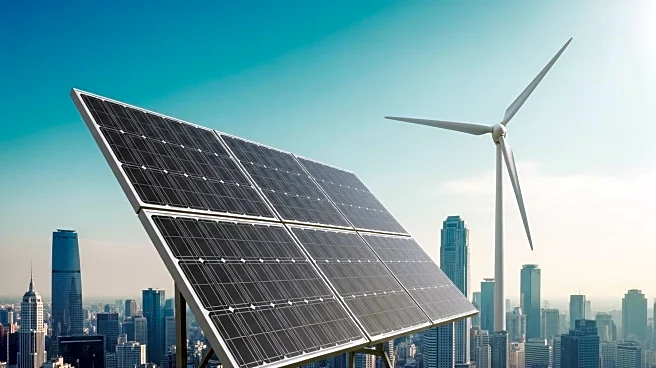What's Happening?
The U.S. energy infrastructure is under pressure due to increasing electricity demand driven by AI, data centers, manufacturing, and electric vehicles. A report highlights the need for a pragmatic energy strategy that includes a mix of fossil fuels, hydroelectric, geothermal, nuclear, wind, and solar energy to ensure reliability and affordability. The Infrastructure Investment and Jobs Act and Inflation Reduction Act provide initial support, but further investment is needed in grid upgrades and reliable baseload power. Policymakers are urged to avoid prematurely phasing out fossil fuels until new capacity is operational.
Why It's Important?
As electricity demand is projected to grow significantly, the U.S. faces potential blackouts and rising energy costs without strategic intervention. A diverse energy portfolio is essential to meet this demand and maintain economic and national security. The report emphasizes the importance of infrastructure investment and regulatory streamlining to support energy transmission and prevent bottlenecks. Ensuring a reliable energy supply is critical for households, businesses, and the broader economy.
What's Next?
The Department of Energy and the Federal Energy Regulatory Commission are encouraged to develop a long-term strategy for uninterrupted energy transmission. The focus will be on expanding transmission capacity and modernizing grids to accommodate new technologies. Policymakers will need to balance the transition to renewable energy with maintaining existing power sources to ensure a stable energy supply.









